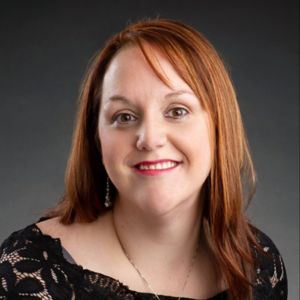St. Jude Family of Websites
Explore our cutting edge research, world-class patient care, career opportunities and more.
St. Jude Children's Research Hospital Home

- Fundraising
St. Jude Family of Websites
Explore our cutting edge research, world-class patient care, career opportunities and more.
St. Jude Children's Research Hospital Home

- Fundraising
New screening process helps clinicians identify educational and mental health problems in children with hemophilia

The HemoFOCUS screening process uses a standardized rating scale to screen children with hemophilia for inattention, hyperactivity and impulsivity, which are symptoms of ADHD. The goal is to improve the odds that patients with a dual diagnosis will be identified and will receive appropriate educational and psychosocial services.
Boys with the inherited bleeding disorder hemophilia may be at higher risk than their peers for attention deficit hyperactivity disorder (ADHD) and other mental health problems. But many remain unidentified and struggle in school.
My team created the HemoFOCUS screening process in response.
We use a standardized rating scale to screen children with hemophilia for inattention, hyperactivity and impulsivity, which are symptoms of ADHD. The goal is to improve the odds that patients with a dual diagnosis will be identified and will receive appropriate educational and psychosocial services.
HemoFOCUS was created through a collaboration among the St. Jude departments of Hematology, Social Work, Psychology and the School Program. What started as a quality improvement project was presented at this year’s virtual World Federation of Hemophilia Global Congress.
The right path
“Early identification of mental health and learning issues, along with intervention, sets the child on a path that gives him the best chance of meeting his full potential,” says Amanda Pullen, a St. Jude social worker and part of the team who worked on HemoFOCUS.
Pullen is right. But staff need a way to decide if such intervention is needed.
The rating scale is designed to help answer that question. This tool provides immediate, measurable feedback to families. Children at risk for inattention, hyperactivity or impulsivity, or some combination of these symptoms, then receive additional testing.
Because hemophilia is a rare disease, the number of patients screened for this project was small. Of the 51 patients who participated, 25 were classified as at risk and received additional evaluation in the St. Jude Psychology Clinic or from community providers. Of this group, 36% met the diagnostic criteria for ADHD, and 64% met the criteria for learning or mental health disorders. These percentages exceed national norms for otherwise healthy children.
“Understanding a child’s learning problem is an invaluable tool,” says Justin Gardner, manager of Liaison Services in the St. Jude School Program. Gardner’s team helps patients receive the accommodations needed to succeed in their community schools.
Understanding a child’s mental health challenges is important, too. HemoFOCUS helps clinicians know when a referral to a mental health provider is appropriate.
Beyond the diagnosis
While it is important to have licensed teachers, social workers and psychologists accessible in the medical clinic to provide the information, that’s only the first step; families and patients also deserve our help. It is my job as the teacher to take the recommendations from the HemoFOCUS project to advocate in each patient’s community school to get the accommodations in place allowing that child to excel academically while also living with a chronic illness. Helping families navigate that system makes a real difference in the child’s life and future.
The coronavirus complicates these issues. Parents worry about loss of school time, particularly for children with disabilities who may already be behind. The St. Jude School Program offers a virtual reading clinic in the summer for hematology patients and an online camp (also open to other patient groups) with numerous learning opportunities from science to creative writing.
Plus, students who might feel anxious during this stressful time can attend a new virtual camp created specifically for children with hemophilia. The official camp theme is “Learning Emotional First Aid: Empathy, Mindfulness and Resilience.” St. Jude teachers, social workers and psychologists present a series of lessons designed to boost these skills. We know that many of our patients with hemophilia struggle with educational and psychosocial challenges. Now, with the help of HemoFOCUS, we can better identify those patients and help them reach their full potential.






